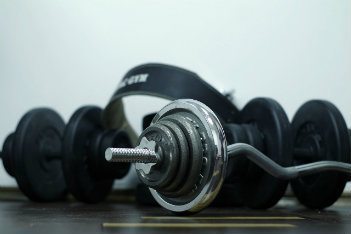Can Just 15 Minutes Really Be Enough Exercise For Us?
For many of us, finding time to exercise can be a challenge. A demanding job, kids at home and other obligations can leave us with little time for anything else. To make matters worse, the idea of spending an hour or more in the gym can seem overwhelming. But is this really necessary? Can 15 minutes of exercise be enough?
A recent Taiwan research study suggests that exercising daily for just 15 minutes can boost your life expectancy by three years and reduce the risk of death by 14%. However, this begs the question, for how long should one exercise to remain healthy? Are 15 minutes per day sufficient? According to a popular health post, 15 minutes per day may well be enough.
Is Fifteen Minutes Of Exercise Really Enough?
As often happens, these headlines initiate confusion and mislead people about the necessities for optimal health. Though little exercise is quite good, more is ideal, at least to some extent. High-intensity exercise provides numerous health benefits; however, and should only be done by qualified individuals.
Exercising regularly is essential for long-term weight management, hence committing 15 minutes per day is not ideal for weight management or loss. Fifteen minutes is considered a good starting point, but the ideal is 45-60 minutes per day, five times a week, in order to guarantee the best results.
According to a recent study published in the journal The Lancet, people who never exercise at all may end up dying earlier or end up with lifestyle diseases such as diabetes, cardiovascular disease, or cancer. These results come from research that was conducted on a large population of people of Taiwan; it compared death risks for sedentary individuals and those who exercised from time to time across the week.
Remarkably, people who exercised 15 minutes per day or 90 minutes a week had a reduced risk of developing diseases or dying as compared to the sedentary ones. This was the media’s main point regarding the research. As expected, there is more to the exercise story.
Putting The Study to the Test
Over 416,000 Taiwanese filled out questionnaires and were consequently followed for over eight years on average. Those who exercised less often (15 minutes a day) were better off since those who were sedentary increased their dying risk by 17%. As it was translated, those who exercised 15 minutes a day would live three years longer unlike their sedentary counterparts who could certainly die earlier. Sedentary individuals, however, have increased their
As it was translated, those who exercised 15 minutes a day would live three years longer, unlike their sedentary counterparts who could certainly die earlier. Sedentary individuals, however, have increased their risk of developing cancer by 11% as compared to those who exercise 15 minutes per day. Hence, despite 15 minutes per day of exercise providing significant health benefits, the news report makes it seem like a bigger deal than it can ever be.
At the end of the day, 15 minutes of exercise is better than nothing. However, in order to maximize your health benefits and keep your body in optimal condition, it’s best to aim for at least 45-60 minutes per day when possible. The good news is that you don’t have to do this all at once. Break up your workouts into smaller chunks if needed—even 10 or 15-minute bursts can add up over the course of a day to help you reach your goals.
Beyond Preventing Death And Disease
Exercise is vital for weight management and weight loss. Though most people have witnessed little success in their pursuit to lose weight by focusing on exercise and neglecting nutrition, exercise is very significant. Exercise benefits are not a necessary derivative of how many calories are burnt- though it is part of how training can support weight management.
Of most importance is how exercise triggers body hormones, regulates metabolism, supports lean body mass changes, alters sugar levels and consequently enables the body to burn fats more efficiently. A 15-minute daily exercise may, after all, not be beneficial for an overweight person who wishes to lose some weight.
Shorter Duration Equals Greater Intensity
The research author further points out that vigorous-intensity exercise usually yields greater health benefits- in terms of mortality reduction than moderate-intensity done at a similar volume or even higher capacity. That means individuals who engage in high-intensity exercise usually gain similar benefits to those who conduct moderate-intensity exercise over longer durations.
One may gain similar results from interval exercises that entail alternating walking and sprinting for 15 minutes as compared with physical activity, including 60 minutes of walking. Sprint exercises are much better since they have more impact on your body’s muscular development and hormones.
How Long Is Enough?
Dedicating 30 minutes of exercise a day might seem very challenging for most of us; however, starting small and increasing with time could be achievable.
There are 168 hours in a week. You should get 8 hours of sleep per night; this leaves you with 112 hours when you’re awake each week. From the study, exercising for an hour and a half each week will lead to a significant impact on your health. You can gain incredibly good results with relatively small amounts of exercise. More time is always better; however, 15 minutes is a good place for you to start.






